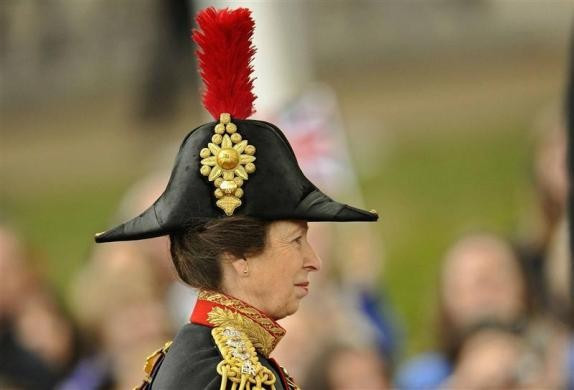Princess Anne was exempted from 'gender testing' when she competed in the Olympics
The International Olympic Committee first introduced gender testing in 1968 in an attempt to ensure fair competition.
Princess Anne created history when she participated in the 1976 Olympics, as she became the first British royal to compete in the leading international sporting event. She made history at the competition in one other way, as she is the only woman to be exempted from "gender testing."
The International Olympic Committee first introduced gender testing in 1968 in an attempt to ensure fair competition. These tests were compulsory for female athletes, primarily to prevent men from competing in the women's events, as the committee feared they would pose as female and have an unfair advantage over their competitors.
Mandatory gender testing was officially stopped in 1999, though there can still be evaluation of individual athletes if there is any question regarding their gender. But it was very much compulsory when Princess Anne made her debut at the 1976 Montreal Games, where she was a part of a mixed-sex equestrian team for the United Kingdom.
While other female athletes were mandated to undergo sex tests at the same games, the Princess Royal was excused as it was deemed inappropriate for the daughter of monarch Queen Elizabeth II. People also reportedly pointed out that such a test for the equestrian riders is pointless as the men and women compete against each other in the event, as per Reuters.
There are still debates around female athletes' abilities in connection to their gender. One of the early cases that raised questions about the test was when Polish athlete Ewa Kłobukowska became the first athlete to fail it in 1967. Kłobukowska, who won gold in the women's 4x100 m relay and was third in the women's 100 m at Tokyo 1964, was found to have a rare genetic condition (XX/XXY mosaicism) which gave her no advantage over other athletes, but was still banned from competing in Olympic and professional sports.
The conversation was reignited last year after two-time Olympic gold medallist Caster Semenya from South Africa was barred from the Tokyo Games for having naturally higher testosterone levels than the other women against whom she was racing. She was required to undergo the test after she won the 2009 World Championships, after which she was removed from the subsequent competition.
After nearly a year, she was eventually cleared to compete in London 2012 where she won a silver medal in the women's 800 meters, but many believe that she seemed to run a poor tactical race in order to not win and avoid further controversy. She went on to win at the 2016 Olympics, and the 2017 World Championships. However, the new World Athletics rules implemented in 2019 prevent women like Semenya from participating in the female category unless they undergo hormonal therapy to suppress their testosterone levels. Semenya filed an appeal with the European Court of Human Rights against the restrictions earlier this year.

© Copyright IBTimes 2025. All rights reserved.





















